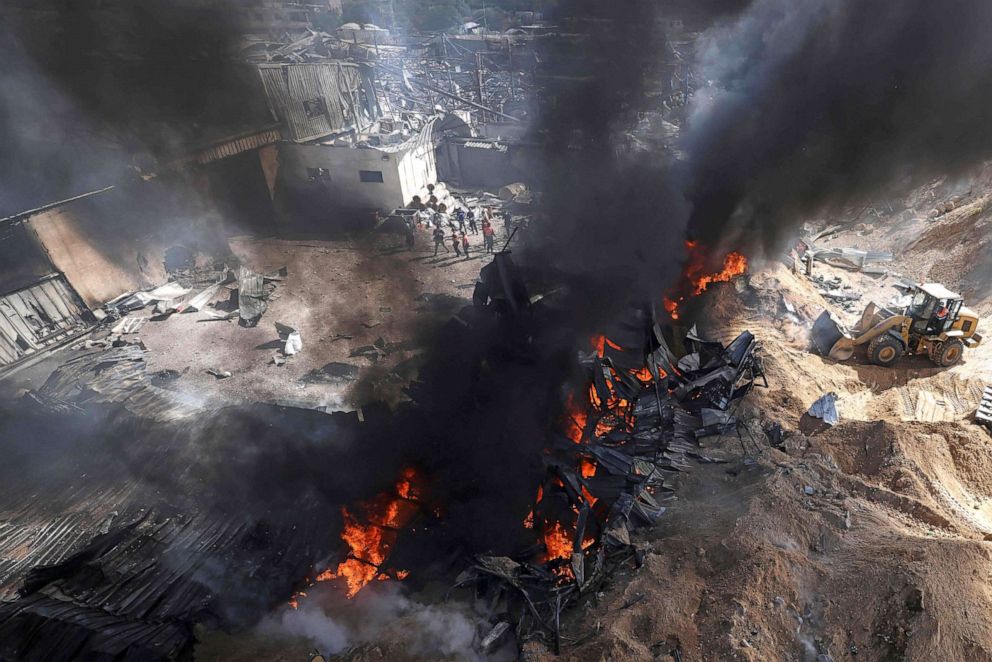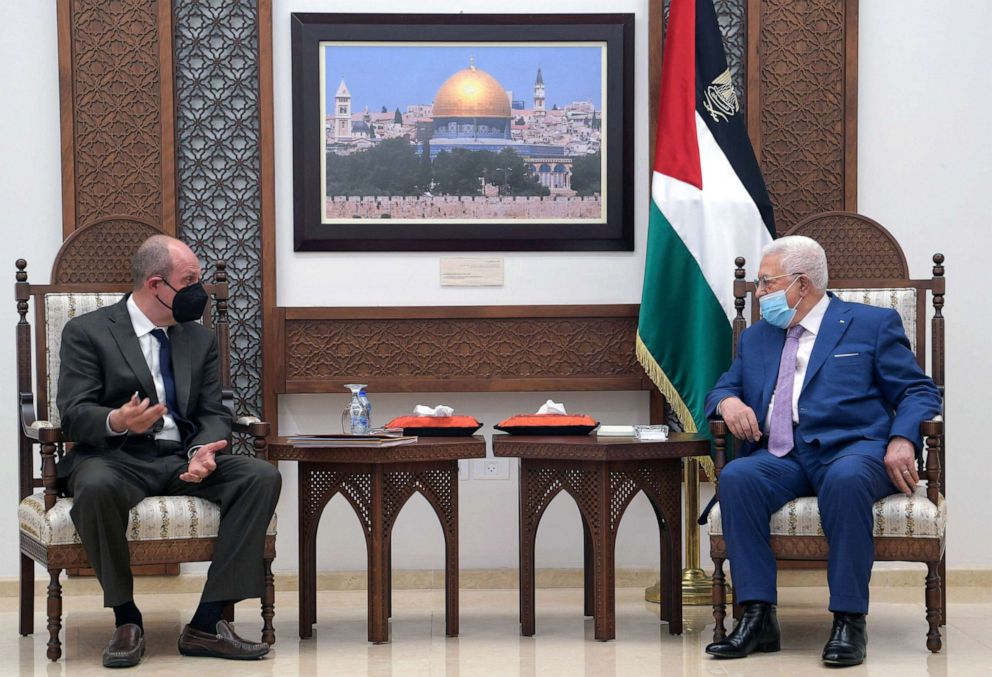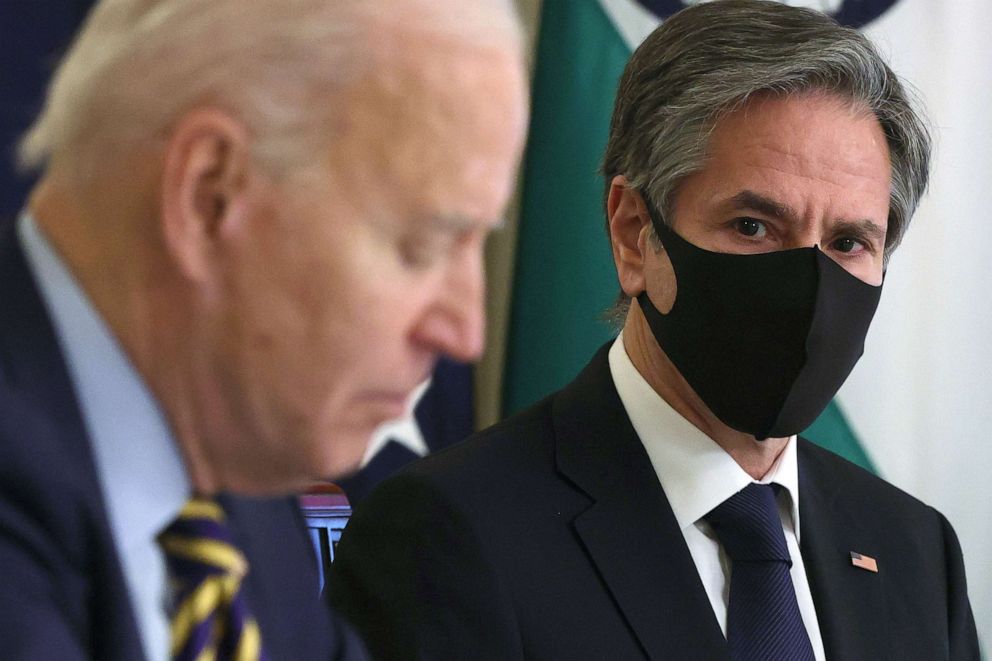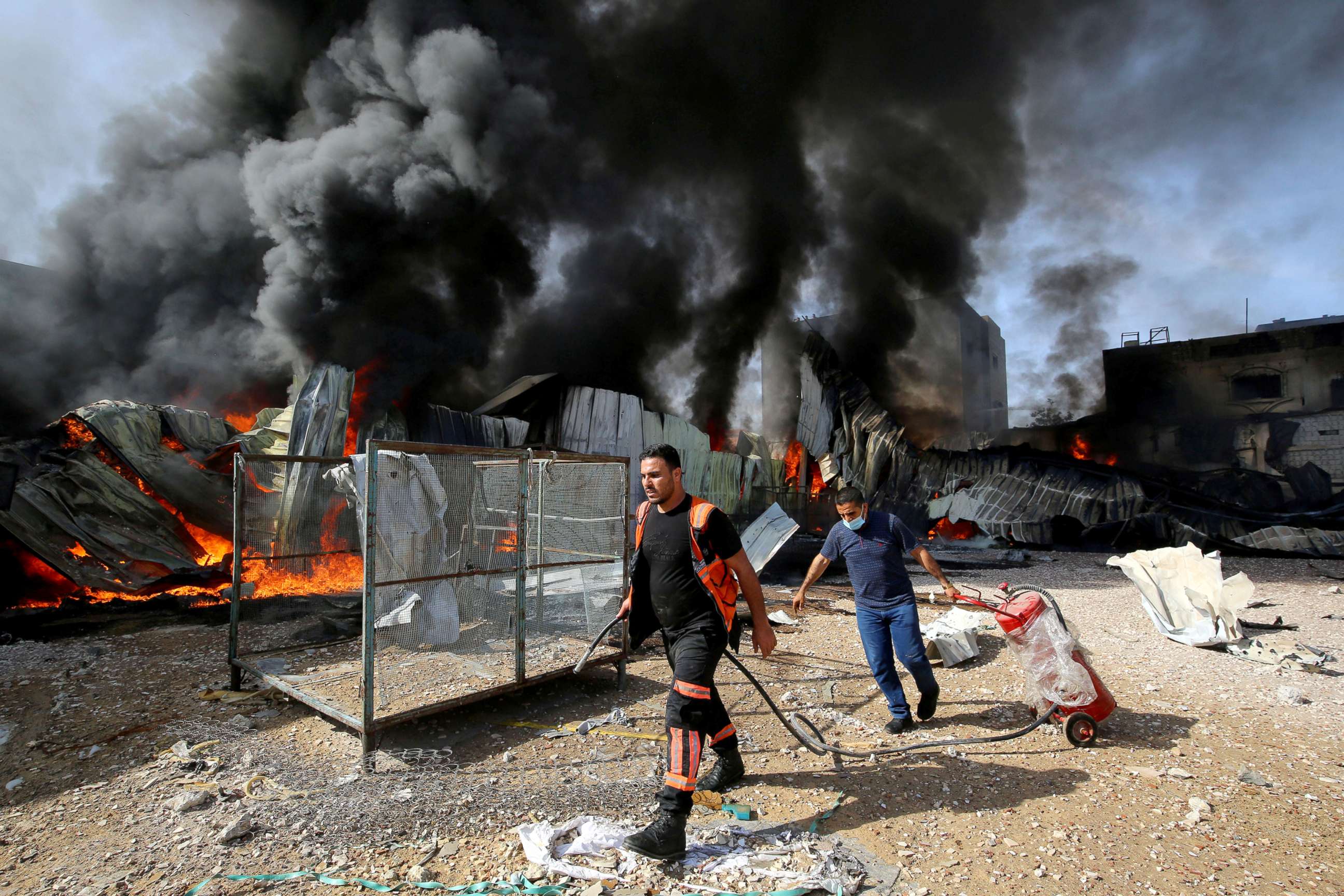Amid pressure, Biden backs cease-fire in call with Israel's Netanyahu
He's urged to take a more active role in addressing the decades-old conflict.
As the fighting between Israeli forces and Hamas, the militant group that governs Gaza, enters a second week, President Joe Biden is now backing a cease-fire as critics urge him to take a more active role in addressing the decades-old conflict between the Israelis and Palestinians.
During a call with Israeli Prime Minister Benjamin Netanyahu Monday, Biden for the first time "expressed his support for a cease-fire and discussed U.S. engagement with Egypt and other partners towards that end," according to the White House.
An increasingly vocal wing of Biden's own party has been pressing him to pressure Netanyahu to halt Israeli strikes on Gaza. On Sunday, 29 Democratic senators issued a joint statement urging an "immediate cease-fire," as did the top Republican and Democratic senators on the Senate Foreign Relations Committee's Mideast subcommittee.
Biden and Netanyahu have spoken three times in the last week now, and while the president now supports a cease-fire, it's unclear whether the U.S. has any proposal on the table or will exert pressure on Israel to agree to one -- something Netanyahu signaled Monday he would not agree to.
In the last 48 hours, the U.S. has escalated its "quiet, intensive diplomacy," in Biden's national security adviser Jake Sullivan's words, to end the violence. He and Secretary of State Antony Blinken made a series of calls on Monday, as U.S. envoy Hady Amr met with Palestinian leadership in the West Bank Monday.

"We are prepared to lend our support and good offices to the parties, should they seek a cease-fire," Blinken said earlier on Monday before Biden's call with Netanyahu. "But ultimately it is up to the parties to make clear that they want to pursue a cease-fire."
Amr, who serves as deputy assistant secretary of state for Israeli-Palestinian issues, had his first meetings with Palestinian leaders, sitting down with Palestinian Authority President Mahmoud Abbas Monday in the West Bank -- who has little to no influence with Hamas and its leadership in Gaza.
While Biden expressed support for a cease-fire, it's unclear if he pushed Netanyahu for one -- a question the White House declined to answer. Earlier in the day, press secretary Jen Psaki told ABC News that the administration is focused on "having those conversations behind the scenes."
Regardless of the change in Biden's position, Netanyahu has made clear he is not ready to stop and will take further military action. After meeting his national security advisers Monday, he said he ordered them "to continue striking at the terrorist targets," as Hamas continues to fire rockets indiscriminately into Israeli territory.

In the last week, 212 Palestinians have been killed, including 61 children, according to the Palestinian Health Ministry, with some 1,400 people injured. In Israel, 10 people, including one child, have been killed because of rocket fire, according to Israeli authorities.
Israel unleashed a wave of airstrikes overnight to target Hamas' system of underground tunnels, Israeli Defense Forces said Monday, claiming to have killed more than 130 Hamas fighters and destroyed over 60 miles of tunnels. Rocket fire from Gaza continued as well, with the IDF reporting more than 3,200 fired in the last week.
Biden has defended Israeli strikes, saying last week that he's seen "no overreaction" and that Israel has a right to self defense. He ignored questions Monday about whether he still believed Israel's response has been proportionate, but the White House said he expressed to Netanyahu "his firm support for Israel's right to defend itself."
But a strike on Saturday seemed to turn the tide for others, especially among U.S. Democratic lawmakers. Israeli forces destroyed the offices of the Associated Press, Al Jazeera and other outlets in Gaza on Saturday. Israel said that Hamas used the building as well -- which the Associated Press denied -- and that it shared intelligence with the Biden administration to that effect.

Blinken said Monday he had not personally seen "any information provided" to the U.S.
"To the extent that it is based on intelligence, it would have been shared with other colleagues, and I'll leave it to them to assess," he said.
The top U.S. diplomat spoke to the Associated Press' president Saturday, expressing "relief" that no one was harmed.
But other Democrats have expressed outrage. In a statement, Sen. Bob Menendez, D-N.J., the chair of the Senate Foreign Relations Committee and a staunch supporter of Israel, called for "a full accounting of actions that have led to civilian deaths and destruction of media outlets. ... This violence must end."
Menendez was one of only a handful of Democrats who didn't sign a joint statement issued Sunday, led by freshman senator Jon Ossoff, D-Ga., that said succinctly, "To prevent any further loss of civilian life and to prevent further escalation of conflict in Israel and the Palestinian territories, we urge an immediate cease-fire."
Senate Majority Leader Chuck Schumer, D-N.Y., said Monday that he agreed, and at least one Republican has now made a similar plea. Sen. Todd Young, R-Ind., the top Republican on the Senate Foreign Relations Subcommittee for the Middle East, joined his Democratic chair Sen. Chris Murphy of Connecticut and called for a cease-fire to "be reached quickly and that additional steps can be taken to preserve a two-state future."

In response to criticisms, Blinken denied that the U.S. is "standing in the way of diplomacy" at the United Nations, where the U.S. has been blocking a Security Council statement calling for a cease-fire. He implied that was because a Security Council statement would not "advance the prospects for ending the violence.
"If we think that there's something, including at the United Nations, that would effectively advance that, we would be for it," he added.
In the meantime, he and Sullivan continued to make calls Monday. Sullivan spoke to his Israeli and Egyptian counterparts, while Blinken spoke to foreign ministers from Israel, Tunisia, Jordan, the United Arab Emirates and the European Union.
Israeli Foreign Minister Gabriel Ashkenazi said in a tweet that he thanked Blinken for backing Israel at the U.N. and that Israel "would continue to act against the terrorists of #Hamas until peace was restored to the communities in the south & center of the country."




